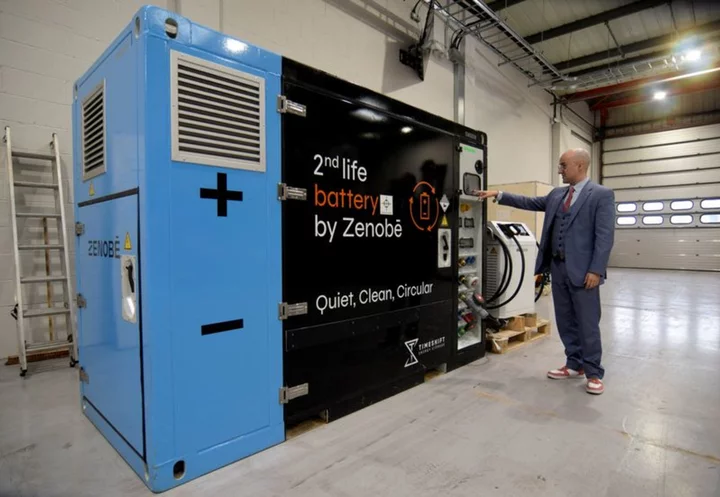
A second life for EV batteries? Depends how long the first is
By Nick Carey, Paul Lienert and Victoria Waldersee LONDON Global automakers have touted plans to re-use electric vehicle
1970-01-01 08:00

Apollo Global leads debt investment in chipmaker Wolfspeed - media
A group of investors led by Apollo Global Management is making a debt investment between $1 billion to
1970-01-01 08:00
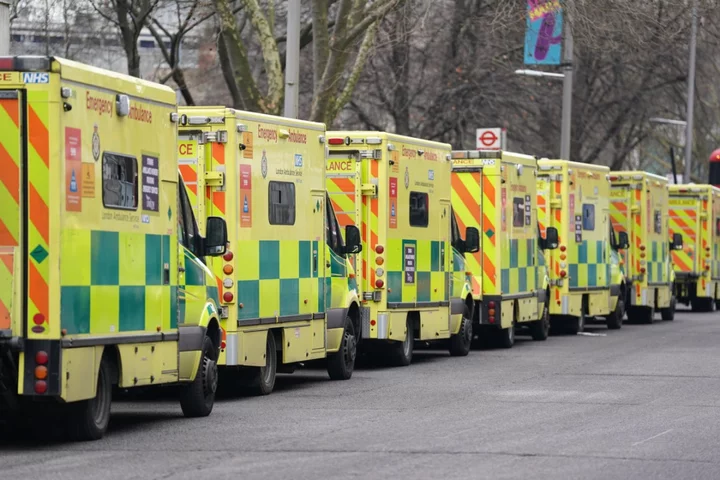
Emergency number back in use after nationwide technical fault
People can once again call 999 in an emergency after services were hit by a nationwide technical fault. BT said it had implemented a back-up platform after issues with 999 calls connecting were reported on Sunday morning. Emergency services across the country have confirmed they are able to receive 999 calls again, but some warned they were still experiencing residual difficulties. A spokesperson for BT said: “Early this morning we experienced a problem with the 999 service. “The situation is fast-moving as we fix the problem and our back up platform is now working – so people should call 999 as usual. “We will provide updates as the issue is resolved.” Cheshire Fire and Rescue Service warned of a 30-second delay to connect to 999, while Suffolk Police said its system may not be working to full capacity and urged people to use 999 only in a genuine emergency. The Metropolitan Police said the back-up system was “not as effective at telling us where you are calling from”. “Help us by having the address of the emergency ready,” the force said. “If you don’t know the address, look around for a street name or obvious landmark.” East Midlands Ambulance Service (EMAS) said that if a 999 call was not successful, people should call 111 for urgent medical help instead. Richard Lyne, strategic commander at EMAS, said: “We urge people to seriously consider the alternative services available and if it’s possible to make your own way to a treatment centre. “For example, if a relative or friend can take you by car.” Problems with the service, which is managed by BT, were first reported at around 8.30am on Sunday and people were told to call 101 in an emergency for police and fire, or 111 in a medical emergency. Several police forces and fire and ambulance services said they were facing issues and said BT had reported a “system failure”.
1970-01-01 08:00

Scientists have come up with a new meaning of life – and it's pretty mind-blowing
The meaning of life is the ultimate mystery – why do we exist? And is there a point to… well… anything? These are questions to which we may never find answers, but at least we can define what “life” means in scientific terms. And yet, our understanding of what life is is changing all the time, thanks to space exploration. As scientists continue to hunt for life beyond our own world, biologists are having to rethink the meaning of the word “life” itself. Sign up for our free Indy100 weekly newsletter Generally, biologists explain “life” as connoting a self-sustaining chemical system which is capable of performing functions such as eating, metabolising, excreting, breathing, moving, growing, reproducing, and responding to external stimuli. This definition works pretty well here on Earth (although there are some important exceptions, such as viruses), but experts have pointed out that if life exists elsewhere in the universe, it may not display the same properties that we’re used to. Indeed, it might be unrecognisable as life as we know it (forget those little green men). In which case, how will we spot it if it ever crosses our path? Astrobiologist Sara Imari Walker and chemist Lee Cronin think they’ve come up with a solution. The pair are now arguing that highly complex molecules found in all living creatures can’t exist thanks purely to chance. Therefore, they say, the universe must have a way of creating and reproducing complex information and retaining a “memory” of all of this.. In an interview with New Scientist, Walker, of Arizona State University, explained their radical idea on how objects come into existence. The concept, known as Assembly Theory, explains why certain complex objects have become more abundant than others by considering their histories. If the theory proves correct, it will redefine what we mean by “living” things and show that we’ve been going about the search for extraterrestrial life all wrong. In the process, we could even end up creating alien life in a laboratory, she stressed. In her discussion with New Scientist, Walker pointed out: "An electron can be made anywhere in the universe and has no history. You are also a fundamental object, but with a lot of historical dependency. You might want to cite your age counting back to when you were born, but parts of you are billions of years older. "From this perspective, we should think of ourselves as lineages of propagating information that temporarily finds itself aggregated in an individual." Assembly theory predicts that molecules produced by biological processes must be more complex than those produced by non-biological processes, as Science Alert notes. To test this, Walker and her team analysed a range of organic and inorganic compounds from around the world and outer space, including E. coli bacteria, urine, meteorites and even home-brewed beer. They then smashed up the compounds into smaller pieces and used mass spectrometry to pinpoint their molecular building blocks. They calculated that the smallest number of steps required to reassemble each compound from these building blocks was 15. And whilst some compounds from living systems needed fewer than 15 assembly steps, no inorganic compounds made it above this threshold. "Our system … allows us to search the universe agnostically for evidence of what life does rather than attempting to define what life is," Walker, Cronin, and others wrote in a 2021 Nature Communications article. The handy thing about this building block system – which they’ve dubbed the “'molecular assembly index” – is that it doesn’t rely on carbon-based organic materials to be identified. In other words, an alien could be made of entirely different stuff entirely and we’d still be able to spot it as life using the index. It also works regardless of what stage of “life” an extraterrestrial being is in – whether it is still in its infancy or has moved into a technological stage beyond our understanding. That’s because all of these states produce complex molecules which couldn’t exist in the absence of a living system. If all of this is hurting your head, let’s just get back to the basics: if there is a secret to life, it might all be down to what we do, not what we are. Have your say in our news democracy. Click the upvote icon at the top of the page to help raise this article through the indy100 rankings.
1970-01-01 08:00
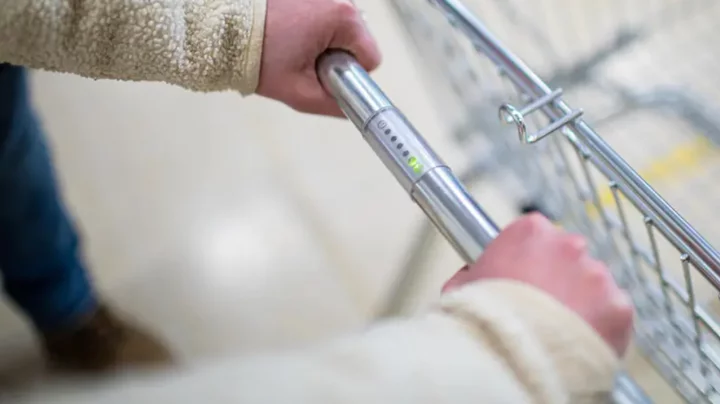
Heartbeat sensors on shopping trolleys 'could save lives', new study suggests
New findings have suggested that adding sensors to supermarket trolleys could save people’s lives. Scientists investigated whether installing electrocardiogram (ECG) sensors – designed to check the heart’s rhythm – on the handles of supermarket, trolleys could identify shoppers with atrial fibrillation, which causes an irregular and often abnormally fast heart rate. The sensors would detect heart conditions that put them at increased risk of stroke. The researchers said that over the course of two months, they identified 39 people who were unaware that they had the condition. Ian Jones, professor of cardiovascular nursing at Liverpool John Moores University, who led the study, said: “That’s 39 people at greater risk of stroke who received a cardiologist appointment.” He added: “This study shows the potential of taking health checks to the masses without disrupting daily routines.” It is estimated that around 1.5 million people in the UK have atrial fibrillation, contributing to one in five strokes. The condition is treatable, but at least another 270,000 people in the UK remain undiagnosed and unaware, according to the British Heart Foundation. Sign up for our free Indy100 weekly newsletter There are wearable devices that can also spot irregular heartbeat but this would also require people to take responsibility and wear the device. Professor Jones said: “Nearly two-thirds of the shoppers we approached were happy to use a trolley, and the vast majority of those who declined were in a rush rather than wary of being monitored. “This shows that the concept is acceptable to most people and worth testing in a larger study.” He added: “Checking for atrial fibrillation while people do their regular shopping holds promise for preventing strokes and saving lives. “A crucial aspect is providing immediate access to a health professional who can explain the findings and refer patients on for confirmatory tests and medication if needed.” The findings were presented at ACNAP 2023 conference organised by the European Society of Cardiology (ESC). Have your say in our news democracy. Click the upvote icon at the top of the page to help raise this article through the indy100 rankings.
1970-01-01 08:00
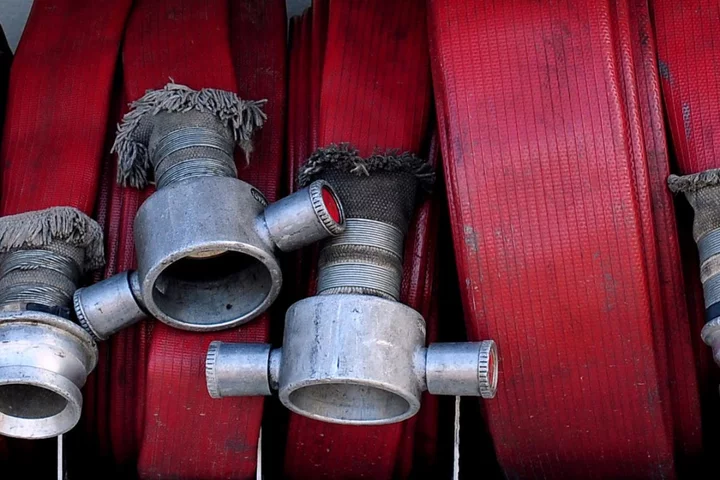
Emergency calls not connecting amid technical issues
Emergency 999 calls across the country are not connecting amid technical issues with the phone lines. People have been urged to call 101 in an emergency for police and fire, or 111 in a medical emergency, after problems were reported on Saturday morning. Several police forces and fire and ambulance services said they were facing issues and said BT had reported a “system failure”. A spokesperson for the Metropolitan Police said: “Due to a technical fault that is impacting a number of police forces, many 999 calls are not connecting. “Until further notice, anyone in London who requires the police in an emergency is asked to call 101. “Please only call in an emergency and please wait until later to make any 101 non-emergency calls.” The spokesperson confirmed that BT runs the 999 system. It is not known how many emergency services have been affected, or when the issue will be resolved. Read More Charity boss speaks out over ‘traumatic’ encounter with royal aide Ukraine war’s heaviest fight rages in east - follow live
1970-01-01 08:00

Citi Sees More Startups Embracing the Once Dreaded ‘Down Round’
As the slump in public stock offerings drags on, Citigroup Inc. is seeing signs of life in the
1970-01-01 08:00

Everything you need to know about AI but were too afraid to ask
Business executives keep talking about it. Teachers are struggling with what to do about it. And artists like Drake seem angry about it.
1970-01-01 08:00
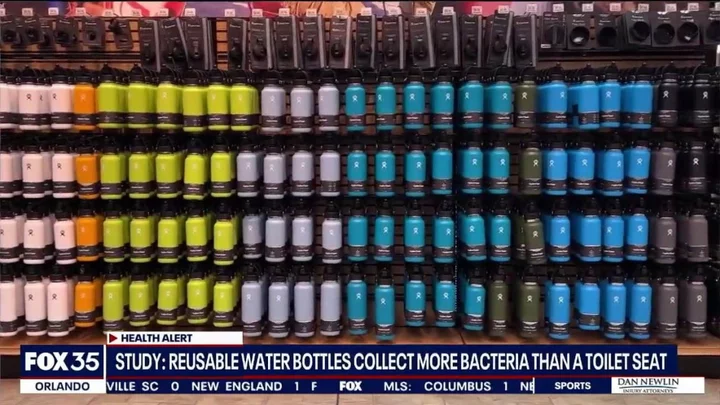
Reusable bottles contain 'more bacteria than toilet seats'
Reusable water bottles tick many boxes. Not only do they help you stay hydrated and help save money, but they also help cut down on single-use plastic. They've almost become a fashion accessory, with chic stainless steel flasks and viral bottles going viral across TikTok. Sign up for our free Indy100 weekly newsletter Trying to hit the NHS-recommended eight glasses of water a day for adults is an excellent idea, of course, but did you know there’s one way your refillable bottle could potentially be detrimental to your health? According to a study from waterfilterguru.com, reusable water bottles contain an average of 20.8m colony-forming units (CFUs) of bacteria, which equates to 40,000 times more than the microbes on a toilet seat. So what might be the consequences if you continuously sip and refill without washing your bottle properly between uses? We asked health experts to talk through the risks… Bottling up bacteria “A common misconception when it comes to reusable water bottle hygiene is that as you’re typically filling it with pure water and it’s only coming into contact with your own mouth, there’s little need to clean it often,” says Dr Donald Grant, senior clinician at The Independent Pharmacy. However, every time you drink from the bottle, you’re transferring bacteria from your mouth, which can then multiply in the container. “Anything that is reusable can be prone to accumulating dirt, dust or debris and, as a result, bacteria,” says private GP Dr Suhail Hussain. “This is exacerbated by the fact water bottles are the ideal environment for harbouring bacteria due to being moist.” Hard-to-reach crevices – for example, inside a screw top or under a flip-up straw – could also develop mould, and then there’s contamination from other sources. “When you store it in a gym bag, for instance, it can pick up bacteria from the interior of the bag or anything else stored in it, while you can also transfer bacteria from your hands to your bottle,” says Grant. “If your bottle has a valve cap, you may need to lift or twist it with your fingers, and this can transfer bacteria you may have picked up from touching other objects or surfaces.” What types of microbes are found in water bottles? “These might be simple commensals such as streptococcus and staphylococcus, which normally live in symbiosis with their host (i.e. us) but can become problematic if they accumulate or the individual is under the weather,” Hussain says. “Bacteria such as E. coli – a common cause of urine and bowel infections – can often colonise the water bottle following repeated handling, such as taking the cap on and off.” These bacteria can potentially cause a variety of issues. “You may become sick and develop gastric illness, such as diarrhoea or vomiting,” Hussain continues. “Gram negative rods – another common bacterium found in unwashed bottles – can lead to urogenital tract infections and pneumonia.” Grant warns: “If there’s a build-up of mould inside the bottle, this can cause allergy symptoms, such as a runny nose, sneezing, or red and itchy eyes. Symptoms might be more severe for someone with asthma.” How often should you wash your reusable water bottle? “To minimise your risk of getting sick, you should ideally clean your water bottle after each use,” Grant says. “As a minimum, you should aim to wash it thoroughly at least a few times a week.” Hot water and washing up liquid are all you need to banish bacteria on a daily. “Fill the bottle with hot soapy mixture and swill around, or leave to soak in a detergent mixture,” Hussain advises. “Remember to pay special attention to lids/caps and screw top regions – use a clean brush [to scrub them].” If you’ve neglected your bottle for a few days and it needs a deeper clean, Grant suggests: “Soak your bottle overnight in a solution of half vinegar and half water. Rinse the bottle and let it dry fully before using it again.” Storage is also important to help minimise nasty microbes. “Where possible, you should keep your water bottle out of germ-rich environments such as your gym locker or sports bag,” Grant says. “You should also avoid filling your bottle with anything other than water, such as protein shakes, energy drinks, or sugar-rich liquids, as sugar can stimulate the growth of bacteria.” Hussain adds: “Don’t leave a water bottle in the sun for long periods or sitting in the cup holder in the car – the mixture of warmth and moisture is likely to make bacterial overgrowth worse.” Have your say in our news democracy. Click the upvote icon at the top of the page to help raise this article through the indy100 rankings.
1970-01-01 08:00

SolarWinds executives receive Wells notice from US SEC
(Reuters) -SolarWinds said on Friday some of its former and current executives had been issued a Wells notice by the
1970-01-01 08:00

SolarWinds chief vows to fight any legal action from US regulators over alleged Russian hack
The chief executive of US software firm SolarWinds told employees Friday that "we intend to vigorously defend ourselves" in the face of potential legal action from US regulators over the firm's handling of a sweeping 2020 breach by alleged Russian hackers, according to an internal SolarWinds email obtained by CNN.
1970-01-01 08:00

Nvidia CEO Says Chipmaker ‘Extremely Likely’ to Invest in Europe
Nvidia Corp., the world’s most valuable chipmaker, is “extremely likely” to invest in Europe, Chief Executive Officer Jensen
1970-01-01 08:00
